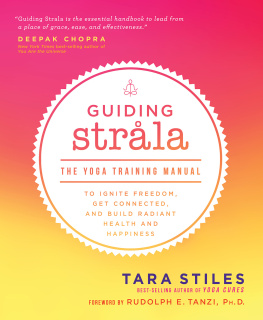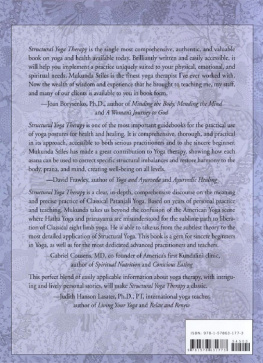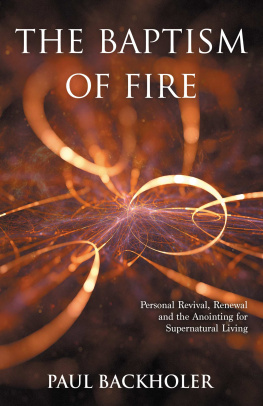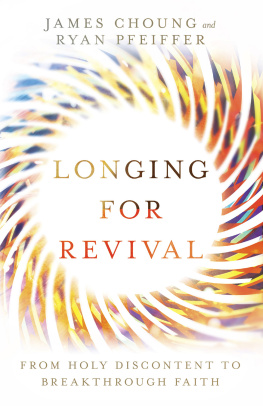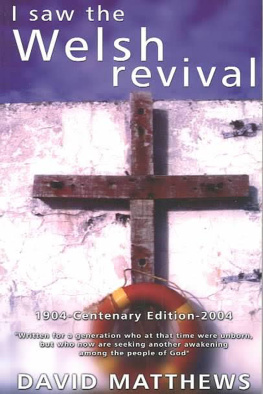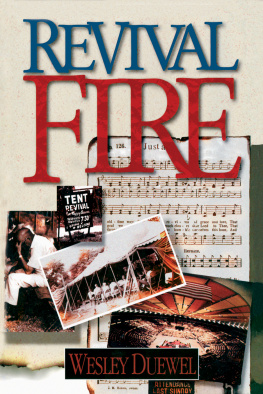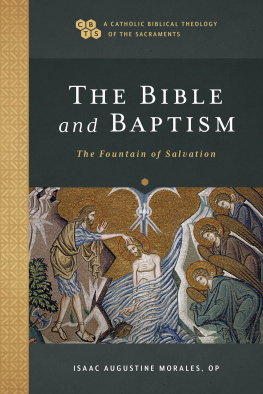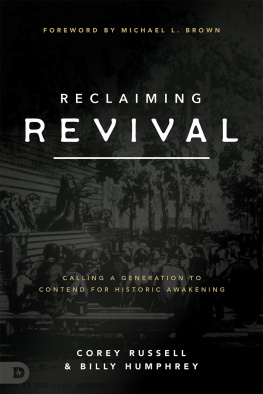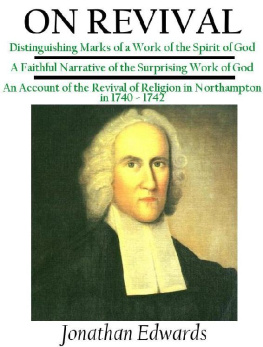Stiles - Toward a biblical theology of revival : an examination of Spirit baptism as the possible catalyst for revival
Here you can read online Stiles - Toward a biblical theology of revival : an examination of Spirit baptism as the possible catalyst for revival full text of the book (entire story) in english for free. Download pdf and epub, get meaning, cover and reviews about this ebook. year: 2011, genre: Religion. Description of the work, (preface) as well as reviews are available. Best literature library LitArk.com created for fans of good reading and offers a wide selection of genres:
Romance novel
Science fiction
Adventure
Detective
Science
History
Home and family
Prose
Art
Politics
Computer
Non-fiction
Religion
Business
Children
Humor
Choose a favorite category and find really read worthwhile books. Enjoy immersion in the world of imagination, feel the emotions of the characters or learn something new for yourself, make an fascinating discovery.

- Book:Toward a biblical theology of revival : an examination of Spirit baptism as the possible catalyst for revival
- Author:
- Genre:
- Year:2011
- Rating:4 / 5
- Favourites:Add to favourites
- Your mark:
- 80
- 1
- 2
- 3
- 4
- 5
Toward a biblical theology of revival : an examination of Spirit baptism as the possible catalyst for revival: summary, description and annotation
We offer to read an annotation, description, summary or preface (depends on what the author of the book "Toward a biblical theology of revival : an examination of Spirit baptism as the possible catalyst for revival" wrote himself). If you haven't found the necessary information about the book — write in the comments, we will try to find it.
Toward a biblical theology of revival : an examination of Spirit baptism as the possible catalyst for revival — read online for free the complete book (whole text) full work
Below is the text of the book, divided by pages. System saving the place of the last page read, allows you to conveniently read the book "Toward a biblical theology of revival : an examination of Spirit baptism as the possible catalyst for revival" online for free, without having to search again every time where you left off. Put a bookmark, and you can go to the page where you finished reading at any time.
Font size:
Interval:
Bookmark:
THE MASTERS SEMINARY
an examination of spirit baptism
A THESIS SUBMITTED TO THE FACULTY
IN PARTIAL FULMILLMENT FOR THE DEGREE OF
MASTER OF THEOLOGY
IN THE DIVISION OF THEOLOGICAL STUDIES
BY
KENNETH MICHAEL STILES
SUN VALLEY, CA
DECEMBER, 2011
Accepted by the Faculty of The Masters Seminary
In partial fulfillment of requirements for the degree
Master of Theology
________________________________
Adviser
________________________________
Adviser
Title: | TOWARD A BIBLICAL THEOLOGY OF REVIVAL: AN EXAMINATION OF SPIRIT BAPTISM AS THE CATALYST FOR REVIVAL |
Author: | Kenneth Michael Stiles |
Degree: | Master of Theology |
Date: | December, 2011 |
Advisor: | Dr. Michael Vlach and Dr. Andrew Snider |
Revival is a bona fide phenomenonwrit large on the pages of church history. There are countless works in whichrevivals are recounted from a biblically informed historical and devotionalperspective. These treatments take for granted that God is involved in revivalsand can be generally divided into two camps. The first views revival as asurprising work of God in pouring out the Holy Spirit on the church. The secondviews revival no less as an outpouring of the Spirit upon the church, but goeson to posit that there are certain measures that man can take to trigger suchan outpouring. There is also a critical school of thought which has sought to explainrevivals from psychological and sociological perspectives. These lattertreatments of the subject tend to discount any supernatural involvement inrevivals. The present writer is in full sympathy with those who view revival asthe result of divine activity.
Despite the differences betweenthe first two camps mentioned, and although many subdivisions could be made withinthe two camps, they are united in viewing an outpouring of the Holy Spirit asthe catalyst for revival. To be sure, differing terminology has been used atvarying times (i.e., effusion of the Spirit, baptism with the Spirit,outpouring of the Spirit, etc.), but a singular activity is signified. Thedifficulty for such a position is that a number of other understandings ofSpirit baptism have been proffered that would seem to cut off the possibilityof its being the catalyst for revival. The purpose of this thesis is todetermine whether it is a viable option to view Spirit baptism as the catalystfor the historical phenomenon that commonly goes by the name of revival.
The introduction presents thesalient issues involved in this study, and proposes a method of examining thevarious views of Spirit baptism by first constructing a biblical theology ofSpirit baptism and then determining whether any of the views meet the relevantbiblical criteria. The construction of a biblical theology of Spirit baptism isthe burden of this thesis and begins in chapter one with an examination of OldTestament passages that speak of a coming outpouring of the Holy Spirit, andtheir relation to the promised new covenant and the Spirits ministry underthat covenant. Chapter two discusses the connection between the message of theOld Testament prophets concerning an outpouring of the Spirit and John theBaptists message about baptism with the Spirit in the New Testament. Thisdiscussion is carried on along the lines of how various strands ofdispensational theology understand the connection. Chapter three examines thepneumatology of Johns gospel as it relates to determining the beginning of theSpirits new covenant ministry. Chapter four examines Spirit baptism on the dayof Pentecost and how what is found there relates to Pauls reference to Spiritbaptism in his first epistle to the Corinthians (1 Cor 12:13). In theconclusion, utilizing the conclusions reached throughout the study, it isargued that it is indeed possible that Spirit baptism is the catalyst of thehistorical phenomenon known as revival.
List of Abbreviations.......................................................................................... vii
INTRODUCTION.............................................................................................................. 1
Understanding Revival............................................................................................ 1
The Pneumatic Phase (1620s1858)................................................................... 3
The Pragmatic Phase (1858Present)................................................................... 4
The Critical Phase (1958Present)....................................................................... 6
Point of Departure................................................................................................. 10
Importance of the Study....................................................................................... 11
Methodology of the Study.................................................................................... 17
Chapter one: The Old Testaments perspective on the SpiritsNew Covenant Ministry....................................................................................................................... 21
Jeremiah 31:3134............................................................................................. 23
Ezekiel 36:2238................................................................................................ 27
Isaiah 59:21........................................................................................................ 29
Summary............................................................................................................ 30
The Old Testaments Perspective on the Spirits Outpouring............................... 31
Joel 3 (En, 2:2832)........................................................................................... 31
Isaiah 32:15........................................................................................................ 38
Isaiah 44:3.......................................................................................................... 39
Ezekiel 39:29...................................................................................................... 40
Zechariah 12:10.................................................................................................. 40
Synthesis and Conclusion...................................................................................... 41
Chapter two: dispensationalism, Spirit baptism, and the newcovenant 44
Dispensationalists on Spirit Baptism..................................................................... 45
Spirit Baptism in Classic American Dispensationalism...................................... 46
Spirit Baptism in Revised Dispensationalism.................................................... 50
Spirit Baptism in Progressive Dispensationalism............................................... 54
Outpouring and Baptism.................................................................................... 57
Summary................................................................................................................ 59
Chapter three: The coming of the spirit in the Gospel of John.. 63
John 7:3739......................................................................................................... 65
Jesus Coming Hour.............................................................................................. 67
Font size:
Interval:
Bookmark:
Similar books «Toward a biblical theology of revival : an examination of Spirit baptism as the possible catalyst for revival»
Look at similar books to Toward a biblical theology of revival : an examination of Spirit baptism as the possible catalyst for revival. We have selected literature similar in name and meaning in the hope of providing readers with more options to find new, interesting, not yet read works.
Discussion, reviews of the book Toward a biblical theology of revival : an examination of Spirit baptism as the possible catalyst for revival and just readers' own opinions. Leave your comments, write what you think about the work, its meaning or the main characters. Specify what exactly you liked and what you didn't like, and why you think so.


